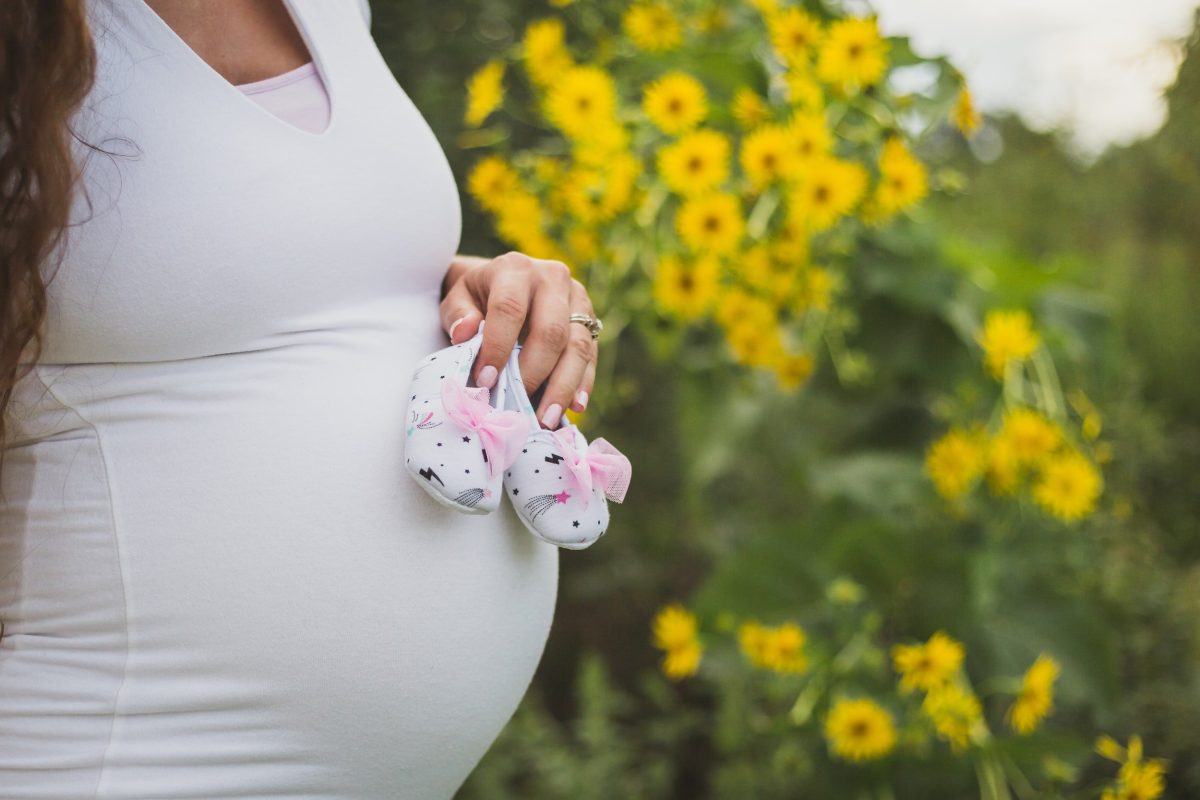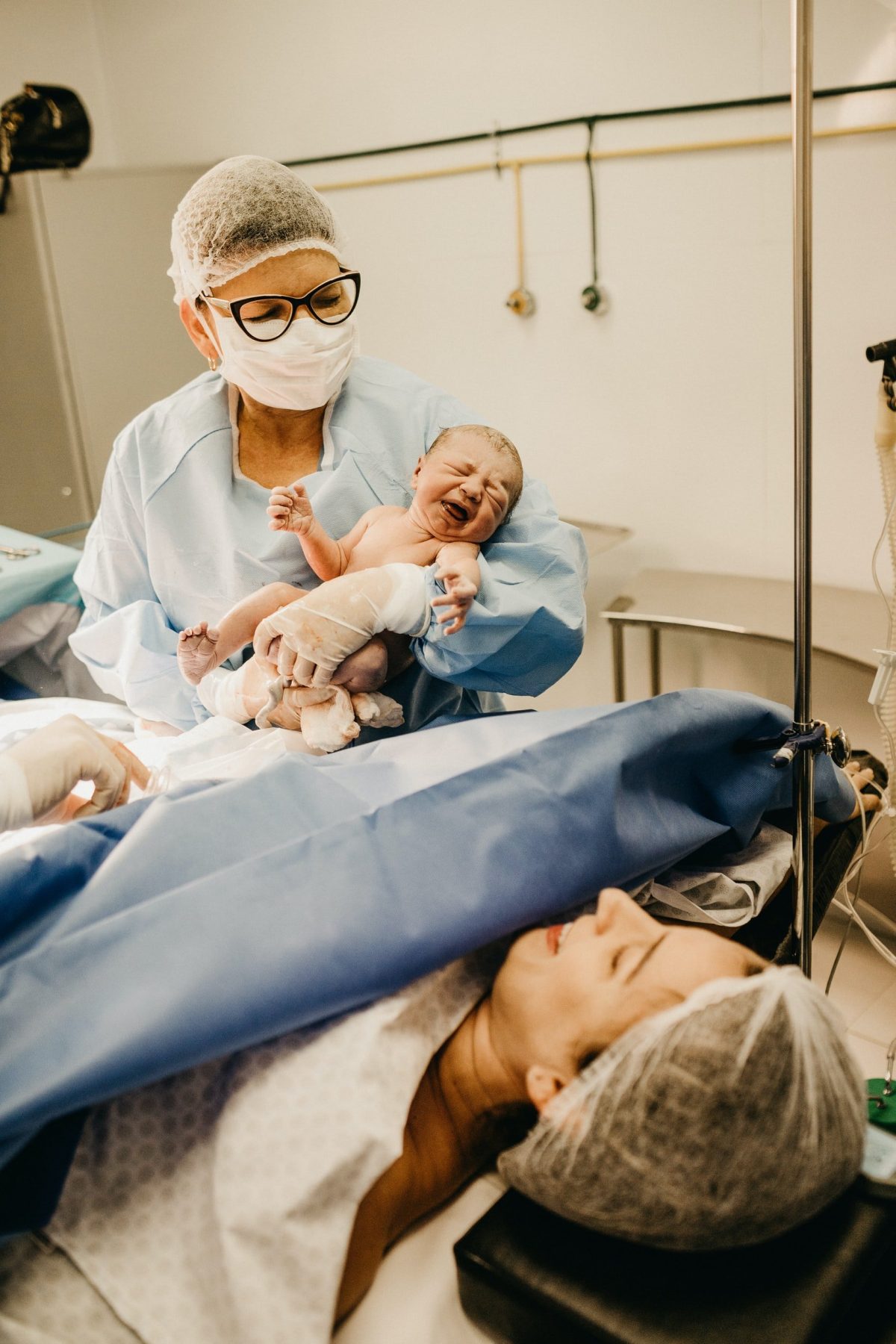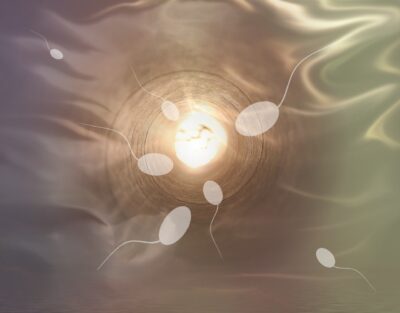
By Ashley Marcin
At times, pregnancy can have you feeling like you’re all over the place. And is it any wonder? Along with joy and excitement, you may also be experiencing aches, pains, or other discomforts.
To find relief, some people turn to alternative medicine to ease morning sickness, back pain, and various other concerns without the use of medications.
Acupuncture is a traditional therapy that has been used in Asian cultures and medicine systems for thousands of years. It has also gained popularity as a complementary therapy in the United States and beyond.
Here’s what you need to know about acupuncture as well as the benefits, risks, and research behind its use during pregnancy.
Purpose during pregnancy
Acupuncture involves inserting tiny metal needles into the skin at specific points on your body. While stimulating these points, a practitioner attempts to balance the yin (cold, slow) and yang (hot, excited) forces in the body to allow a flow of qi (life force).
If you’re new to this type of healing modality, it may sound a little out there. Thing is, there’s research supporting the use of acupuncture for a variety of conditions, including chronic pain and headaches.
You may have heard of using acupuncture while you’re trying to conceive, particularly as part of intrauterine insemination or in-vitro fertilization. Beyond this application, much of the research for acupuncture during pregnancy revolves around its ability to ease morning sickness, according to a 2015 article.
Other potential uses during pregnancy include treating:
-
hyperemesis gravidarum (severe nausea and vomiting)
-
pain in the back, pelvis, neck, and more
-
stress and anxiety
-
depression
-
indigestion
-
swelling (edema)
-
cephalic version (breech babies)
-
pain during labor
It may also be used to induce labor.

Are there benefits of acupuncture during pregnancy?
What exactly can acupuncture do to help you through the next 9 months? Well, there’s a growing body of research to show that the answer to this question is potentially — a lot.
Conception
Even before you get that positive sign on a pregnancy test, you may consider trying acupuncture to help you conceive.
One 2016 studyTrusted Source compared women who received acupuncture during their conception journeys with those who tried other lifestyle modifications. The results were somewhat dramatic in that the acupuncture group generally conceived in half the time of the lifestyle change group.
Researchers say that the women who received acupuncture may have had better fertility awareness and a higher overall sense of well-being. They also noted at the time that this was only the beginning of research on the topic.
Since then, other studies (in 2017 and 2020, for example) have found acupuncture effective in reducing infertility and increasing the chances of getting pregnant.
Morning sickness
There are various studies on acupuncture and its ability to help with nausea and vomiting, both inside and outside of pregnancy.
One older but large review examined studies on the stimulation of the P6 acupressure point, which is also referred to as the spleen channel. Point practitioners believe P6 influences the digestive system.
Participants in studies outside pregnancy had more relief from acupuncture for nausea and vomiting than they did taking standard medications.
And even more relevant and exciting: A review from 2021 looked at 16 previous studies and concluded that acupuncture is effective for severe nausea in pregnancy.
Aches and pains
The hormone relaxin loosens joints during pregnancy. Combine that with added weight as your body grows, and you may be dealing with nagging pelvic or back pain in the second and third trimesters.
Acupuncture has been found effective (and safe) for lower back pain by both a 2021 study and a 2018 study. Other aches and pains — and even emotional discomfort — can also be eased with acupuncture.
Depression
Antepartum depression may affect up to 15 percentTrusted Source of pregnancies. In a small 2010 studyTrusted Source, researchers offered either acupuncture or massage to help with depressive symptoms.
The acupuncture group had a reduction in their overall symptoms comparable to women who receive more traditional depression treatments. And the treatment duration was pretty short, lasting just 8 weeks and 12 sessions overall.
A 2020 study also suggested that acupuncture is an acceptable treatment for reducing and preventing depression in pregnant women.
Breech babies
Acupuncture may also be a good go-to method to try when a baby is breech.
Researchers explain that stimulating acupuncture points BL67 and SI1 between 32 and 35 weeks may help turn babies so they present headfirst. In this case, treatments were given for a duration of 30 minutes for 3 days in a single week, and they were combined with another traditional Chinese medicine technique called moxibustion.
Labor pain
A 2009 studyTrusted Source involving more than 600 pregnant women compared those who used acupuncture in labor to those who used other methods, like transcutaneous electric nerve stimulation and traditional pain medications.
The results? Those in the acupuncture group had a lower chance of using other pain-relieving measures (like epidural, for example) during labor, and the acupuncture did not have an impact on the overall length of labor.
Not only that, but the Apgar scores for babies in the acupuncture group were also the highest.
These results have been confirmed by more recent research. One 2020 review looked at 28 newer studies and found that acupuncture can help with labor pain management — and reduce the need for epidural or other medications.
HEALTHLINE NEWSLETTER
Actionable tips for managing your health during pregnancy
Healthline Parenthood helps you take care of you with support and advice in our week by week newsletter.
Safety of acupuncture during pregnancy
More and more research is being done on acupuncture and its use during pregnancy.
Current information suggests that acupuncture is relatively safe for most pregnancies and that severe reactions or complications are rare. You may experience mild complications (pain or swelling at the needle insertion point, for example) that aren’t long-lasting.
There’s some discussion over certain acupuncture points to avoid during pregnancy because they may lead to bad outcomes. But the information available shows that the incidence of issues like miscarriage, preterm labor, and premature rupture of membranes is basically on par with groups that didn’t receive acupuncture.
Does trimester matter? Not necessarily. Practitioners treat people before pregnancy, during all three trimesters, and postpartum.
You should always speak with your doctor to see if there are any reasons why you shouldn’t seek acupuncture. Otherwise, treatment at a state licensed acupuncturist should be OK, no matter how close or far away you are to your due date.
Check the list of licensed medical professionals with your state’s board of health to be sure your acupuncturist is licensed and trained.
For full article, click below:
Is Acupuncture Safe While Pregnant?
Medically reviewed by Debra Rose Wilson, Ph.D., MSN, R.N., IBCLC, AHN-BC, CHT — Written by Ashley Marcin on August 24, 2021



